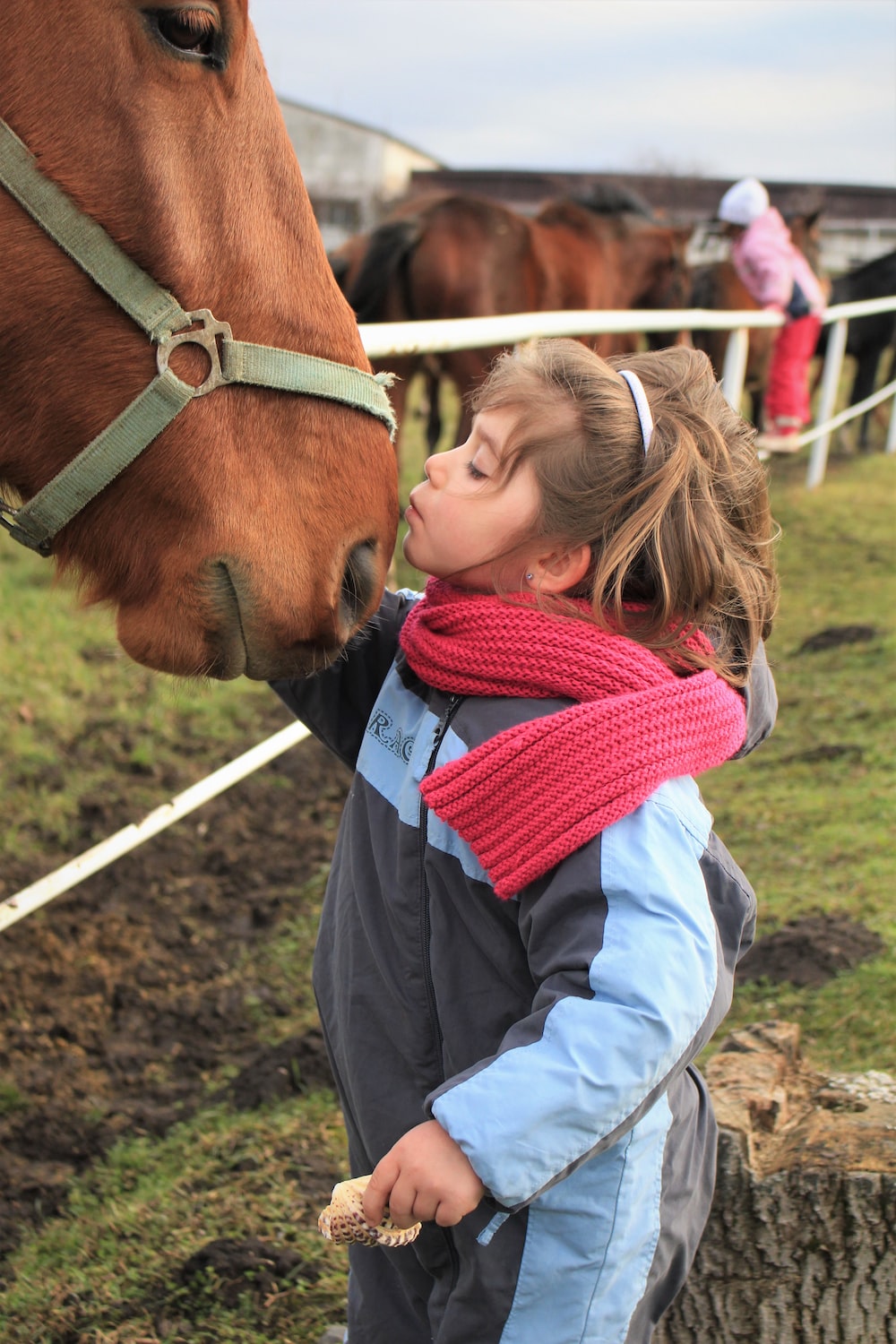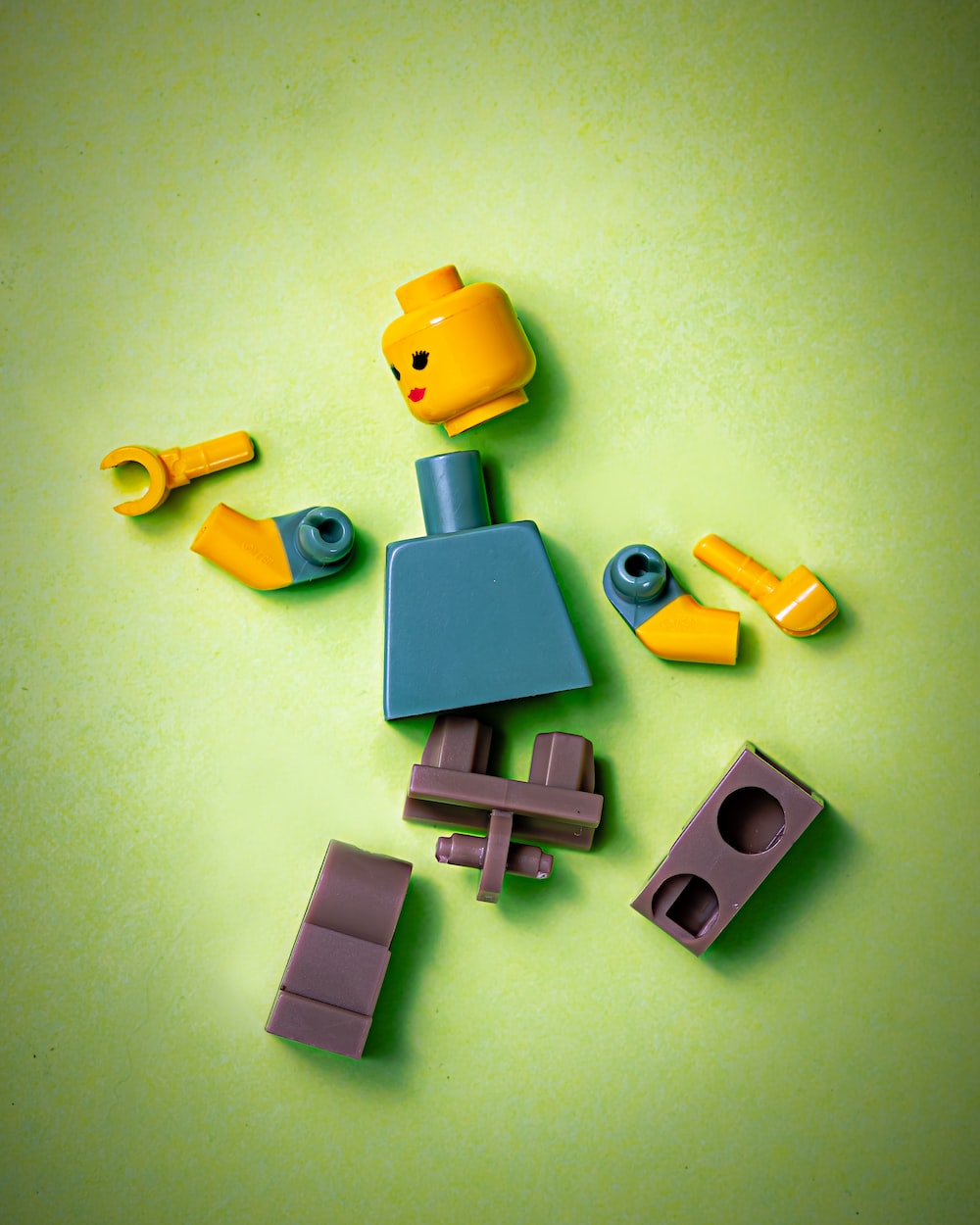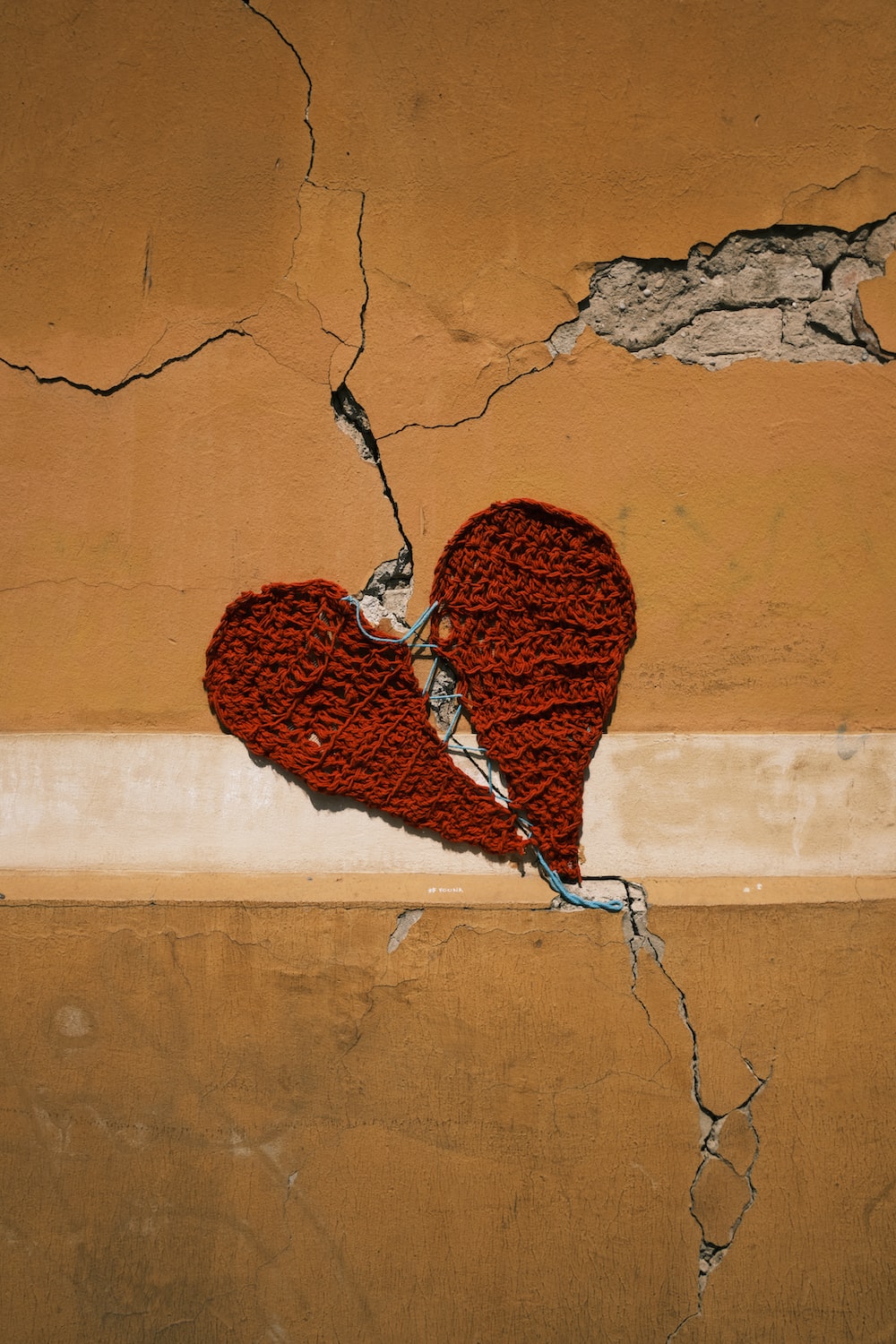The post An interview: Living in the aftermath of trauma and disconnection appeared first on Linda Smallbones.
]]>I recently had an intentional discussion with a mom of two middle-school aged kids about fear, trauma, resilience and coping. Her story highlights the negative impact emotionally absent parenting brings. It highlights how important ongoing connection is with children to help them feel emotionally safe and to help them to learn how to deal with fears both big and small.
I grew up in a farming community during the height of the apartheid years when there was a lot of violence in KZN. My primary school experience was quite frightening; I have clear memories of our school being guarded by the army and police. At home, we had a ‘safe room’ in the house and we were very aware of what we had to do to try and keep safe if we were attacked.
Sounds very frightening, was anyone there to help soothe you, to help you deal with the scariness of it?
Not really. My mom was not available. She was always working. My dad was away with the army. It really didn’t feel like there was anyone there to help us regulate our emotions. I love my parents. I know they were dealing with their own stress and depression in different ways as we were growing up.
You’re an emotionally in-tune and available mom to your kids these days. How did you learn to be available even though your own parents couldn’t be?
I had my horses. I had to do everything for them myself; care for them, train them, keep them fit and healthy. I felt a complete acceptance from the horses, I felt independent and competent being with them. I think this really built my relational skills; I learned care and compassion through being with my horses. To this day, when I visualise my safe space, I think of sitting in the paddock with my horses at the farm.

What other relationships have been healing for you?
My relationship with my husband. My good friend is such a massive support and inspiration to me. Also, my children, I want to make different choices for their sake than my mom did. I want to be present and available. My children need me to be there for them, they need the parent that I didn’t have.
What reward do you get from being a present mom?
Getting to spend those special moments with my kids, the hugs and cuddles or the times they want to talk. I have learned to be in the moment with my non-affectionate child and drop everything when he wants a hug, I need it as much as he does.
In your journey, you’ve decided to do things even when you’re terrified of them, how has this benefitted you?
I have lived a lot of my life being held back by my fears. But I recognise that I have to grow, for the sake of my husband and my children. I was always terrified of the ocean. My husband has helped me to love and embrace it. I discovered that when you put your head underwater it is so peaceful. I really love it now.

What would you like to say to other people who are struggling with trauma-related issues from the past?
I would say to others, find a practice that calms you. Find a way to slow yourself down.
These days I have a practice of getting into the water daily for 5 minutes – yes, even in Winter! I have a mantra I say to myself often, and especially when I go into the cold water and it is “I can do hard things.” This is a very intentional “I can do hard things” practice for me. I practice taking deep breaths. I calm my mind down by saying to myself “Calm your body down. Breath. Calm your mind down.” Instead of getting that panicking feeling in the freezing cold water, I intentionally calm myself down. And then I think about everything I am grateful for and focus on those things.
I find that I carry this calm through my day, and when I get stressed out or into a panic, I tell myself “Pretend you’re in the pool. Calm down. You can do hard things.” It’s working really well as a coping strategy right now. I find myself being more calm in the moment, less explosive and not getting as angry quickly.
To the mom I had this discussion with, thank you. You are truly an inspiration. You were scared, but had this discussion with me anyway, thank you.
This mom’s story is so full of many strengths. She had no one to help regulate her emotional and sensory system (ie: help her calm down in her body or her emotions) when she was younger, but she has and is working out how to do that for herself now. She’s practising, like all of us not always getting it right, but practising – even when she’s terrified!
We talked about so many things that I haven’t captured them all here. But I will return to it to present more nuggets for you to think about.
Yours in healing from the wounds of the past.

The post An interview: Living in the aftermath of trauma and disconnection appeared first on Linda Smallbones.
]]>The post The Body keeps the Score appeared first on Linda Smallbones.
]]>In 2023 I would like to spend a fair amount of blog-space exploring psychological trauma and the impact it has on parenting, relationships and family life.
Trauma can be an event, but also a context. A trauma can be once-off (such as a serious car accident), or it can be an ongoing situation (such as living in an abusive household).
Whatever it is, or however long it remains, trauma is characterised by horror, helplessness, and fear. Trauma isolates and disconnects us from others because we look at the event or context and tend to blame ourselves. We question how that could have happened to us. Or, we are blamed by others for what happened. Sometimes we feel we deserved it, that we’re inherently bad because it happened to us.
No matter what happens to us in life, good or bad, we are wired to try and make sense of it. We try to fit what is happening into what we know about ourselves and the world.
When trauma happens, it can turn our whole world on its head, especially the way we view ourselves. We can end up with very faulty beliefs about who we are.

I have had several parents say things like: Why do I have to talk about what happened to me? It’s over. My children do not need to know. Why is it relevant?
In a sentence, coined by Bessel van der Kolk who has written a book by the same name, the body keeps the score. Our trauma lives in our bodies unless we actively deal with and process it.
Trauma changes the way we see the world in that what we perceived as safe, suddenly becomes unsafe to us, even people around us. Meaningful social connection is essential to our wellness, and trauma can damage our ability to connect with others because of the shame we carry.
What does this mean as a parent? If trauma is sitting in our bodies unprocessed – pushed down and away as faaaaar as it can go – we are still likely to be “triggered” at different points, perhaps even by our children. We may find ourselves unable to make a safe, deep connection with our children even as we love them dearly. We could even interpret them as a threat to ourselves when they engage in certain behaviours that unbeknownst to us, are triggers.
Children, by their demanding nature, often trigger our stress response! We operate on little sleep, we tend to all of their needs constantly in their early years. It’s relentless and stressful at times when we don’t know what we’re doing. An untraumatised parent can put these demands into perspective and find healthy ways to deal with the stress.
But for parents with previous trauma, a screaming baby can trigger a very real fear response, leading them to believe that they are in danger. Even a needy child may be perceived as a threat to a parent who was neglected as a baby.
When unprocessed trauma is expressed in parenting, what happens is the parent projects their “stuff” onto their child. Without meaning to, and often without awareness. When we live with unprocessed trauma, we are using psychological energy keeping things buried where even we can’t remember them, and this means we are not fully available for our most important relationships except maybe at quite a surface level.

If you’re a parent with trauma in your past and you’ve never dealt with it, I highly recommend finding someone you trust to start working through it with. Starting with therapy is a good idea, but add to this some creativity.
I believe there are many avenues that encourage meaningful self-reflection that can help you to get to know yourself better and take you on a journey of healing. These ideas are therapuetic, without being therapy. Some ideas are art classes, exercise groups, retreats, bookclubs…try to find somewhere to belong for yourself that will bring you joy, but also help you to move along on your journey back to finding out who you really are.
You will not only be caring for yourself, you will be working towards better, more connected relationships with others.
The post The Body keeps the Score appeared first on Linda Smallbones.
]]>The post Guiding your child through a natural disaster appeared first on Linda Smallbones.
]]>Generosity and compassion are powerful to move us out of anxiety and into a response that can help others at times like this.
Our province of KwaZulu-Natal has had it’s biggest natural disaster since the 1987 floods, which killed over 500 people. This time, its 443 and counting (but statistics vary according to different reports), at least 63 people still missing and over 13 000 households have been affected, close to 4 000 homes totally destroyed, and just over 8 000 homes partially destroyed.
Very sobering to read these numbers. And especially when I layer the human experience, and the child’s experience on top of that. This is large-scale trauma.
One of the major differences between the 1987 floods and today is that today, with social media and news online 24/7, the feedback of information and devastation is instant, and constant. In 1987, it took some weeks for most people to see the full impact of the floods across the province. This, in many ways, is a healthier scenario for us as humans to deal with. The horror of the event comes into our awareness bit by bit, we might cope with it at a more manageable pace.
Today, the deluge of information doesn’t give us a chance to catch our breath.
The upside of the speed at which we are informed is that we can move towards supporting those who suffer much more quickly. It is helpful to see organisations with boots on the ground getting emergency supplies to those most in need, and to be able to contribute to this.
Just a reminder that in times like this, to be mindful of what your children see and hear.
Watch their media-intake (and your own, if you’re struggling with anxiety at this time). Having the news on continuously while your kids are around may be harmful to them. It can increase anxiety as it makes the world feel unsafe and uncontained for them. Think carefully about how much they can handle.
Talk to them about it, because more than likely it will be spoken about at school by peers and/or teachers. Talk about the facts with compassion, talk about what is being done to help and keep drama and heavy emotion out of it. Teachers may talk about current events in ways that are helpful and informative, but peers maybe not so much! Peers may share the worst horror stories they have overheard which may or may not be true, and this could be distressing.
If your family has been directly affected, there will be a direct impact of trauma and loss for you and a lot of emotion will be normal. If your family has been directly impacted, trying to return a sense of safety, routine and normalcy is important. Emotional connection with people children trust is critical during the aftermath of trauma.
This week, it was reported in the local community paper about a local family who were all swept away, this is a massive tragedy. It is unimaginable and my prayers are with this family, and others who I have heard of over the past week.
A helpful thing we could do with our children is talk about how as a family we could contribute to helping people at this time. Generosity and compassion are powerful to move us out of anxiety and into a response that can help others at times like this. Even if your child hasn’t experienced this disaster as a trauma to themselves, they can be aware that a very small thing they do can make a difference to someone else in a time of need.

The post Guiding your child through a natural disaster appeared first on Linda Smallbones.
]]>The post Trauma, resilience and healing appeared first on Linda Smallbones.
]]>“I think about trauma as any pattern of activating your stress response system that leads to an alteration in how that system is functioning, and that leads to an over-activity and an over-reactivity.” Dr. Bruce Perry
Today I very simply want to recommend a podcast entitled Trauma, Resilience and Healing. It’s a conversation between Brene Brown, Bruce Perry and Oprah that is fascinating and helpful on so many levels to listen to.
When I want to refresh myself on what’s new in trauma research and practice, I most often look up what Dr. Perry is writing because while he is deeply rooted in science, he is also (and more importantly in my opinion!) a compassionate human being. I can highly recommend his book The Boy Who Was Raised As A Dog co-authored with Maia Szalavitz. If you want to understand how complex the impact of trauma is on the developing brain, read this book. It tells stories of several children that Dr. Perry has worked with over decades and how his own understanding of trauma and its impact grew and evolved over time. Many people have found it an incredibly useful resource to start making sense of their own childhood trauma.
In today’s world, I believe we all need to live a little more trauma-informed if we want to grow in love and compassion for those around us. From a South African perspective, my wish is that we could have an increase in accessible research, knowledge, skills and tools that help us navigate our own particular trauma context. Having said that, I think you will find that there is much discussed in this podcast that is really helpful and thought-provoking.
Let me know at [email protected] if you listen to the podcast and what you think!
Brown, B. (Host). (2021, May 5). Brené with Oprah Winfrey and Dr. Bruce D. Perry on Trauma, Resilience, and Healing. [Audio podcast episode]. In Unlocking Us with Brené Brown. Parcast Network. https://brenebrown.com/podcast/brene-with-oprah-winfrey-and-dr-bruce-d-perry-on-trauma-resilience-and-healing/
The post Trauma, resilience and healing appeared first on Linda Smallbones.
]]>The post The trauma hangover appeared first on Linda Smallbones.
]]>Perhaps this week you have felt “fuzzy” in your mind, quite emotional, unable to make decisions, not quite settled and very, very tired. My good friend calls this a “trauma hangover”.
Following the unrest in South Africa two weeks ago, how are you really doing? Have you had a chance to process what has happened on a personal level?
Perhaps this week you have felt “fuzzy” in your mind, quite emotional, unable to make decisions, not quite settled and very, very tired. My good friend calls this a “trauma hangover”.
The week of unrest we all experienced (acknowledging for many that it has been even longer), could be seen as an acute time of stress and/or a trauma. Stress and trauma exist along the same continuum in that the lived experiences and responses can look and feel quite similar. What is important about the definition of trauma is that it is based on the perception of the person experiencing it. Some people may have experienced the unrest as “merely” stressful; others will still be feeling the impact of it as trauma.
Duros & Crowley (2014:238) state that trauma could be thought of as “what happens to a person where there is either too much too soon, too much for too long, or not enough for too long.” (in Dana, 2020).
The unrest could have felt like just too much for too long for many of us. Neurologically, we live in states of either protection or connection (Dana, 2020). When we are in a state of protection, we live in “survival mode”. We know we simply need to get through each day doing what it takes to keep safe.
We may have felt like we were living in survival mode when shops were closed and we had nothing left to eat, no idea of when food would be coming and in the background, there were gunshots, billowing smoke in all directions, and a constant stream of videos of looting and violence on the news and social media. There may have been a really personal sense of possible threat if you or a loved one were part of the patrols through each day and night. Another friend refers to the week of unrest as “the apocalypse” and there’s something that rings very true about this!
When we are in a state of protection, we have less capacity to connect with others, and very little capacity for change. You may have found yourself simply shutting down from others, not able to answer phone calls or messages, and with very little capacity to take on board new information. Instead, you may have found yourself cleaning compulsively, or moving about restlessly desiring to do something useful to help but feeling immobilised in the face of it all. In this state of protection, things can feel discombobulated.
The connection state allows for health, growth and restoration. We can only be in connection when we are no longer in survival.
In my experience, queuing for food one day helped to move me from protection into connection. I found myself in a public space with others who were going through a similar experience to me, and yet there was an air of calm and cooperation. I was able to obtain food for our family and others. For those who lived in areas where there were no shops or the queues took all day, I would guess that they lived in a state of protection for much longer than I did.
As parents, many of us were probably living in a protection state and yet trying to do everything we could to present an outward state of connection to our children in order to shield them from the severity of what was happening. Now this can leave you feeling discombobulated as you essentially live two realities at the same time. No wonder we may have a trauma hangover.
All this is to tell you; you are normal. You are normal if you feel like crying a lot. You are normal if you’re feeling furious. You are normal if you’re still a bit jumpy, suspicious, anxious, fatigued, fuzzy, confused and overwhelmed. Whatever else it is you’ve been experiencing recently, you’re normal.
Hangovers do pass. You have to treat yourself with care and delicacy while they’re around, though. And if after another two weeks or so you feel like you’re still hungover, it may be time to seek extra help. Or even now is a good time to seek help especially if you haven’t had a good opportunity to talk through your experiences with others in a way that feels healthy for you, or your trauma hangover is stopping you from functioning day to day.
Make time to process your experiences, seek healthy connection, be kind to yourself.
Reference: “Polyvagal exercises for safety and connection.” by Dr. Deb Dana. (2020)
The post The trauma hangover appeared first on Linda Smallbones.
]]>